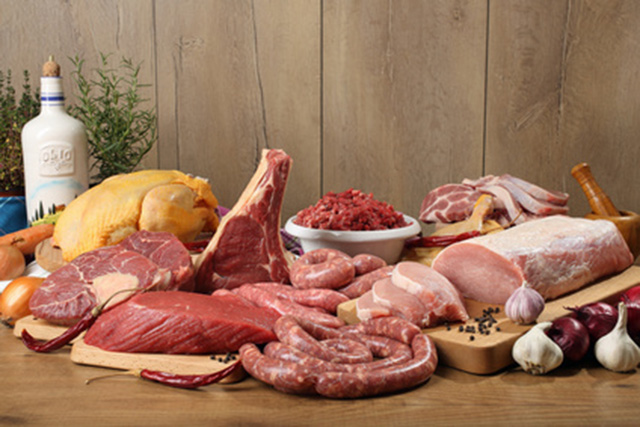Eating red meat has been linked to some types of cancers in humans.
University of California, San Diego (UCSD) set out to investigate a sugar in red meat called Neu5Gc, and how red meat feeds tumors. Neu5Gc is found in most mammals, but not humans.
UCSD scientists found that feeding Neu5Gc to mice that were engineered to be deficient in the sugar greatly increased cancer risk. In the study, mice were not exposed to cancer-causing substances, which confirms Neu5Gc as a key factor in the connection between red meat and cancer.
“Until now, all of our evidence linking Neu5Gc to cancer was circumstantial or indirectly predicted from somewhat artificial experimental setups,” Ajit Varki, MD, Distinguished Professor of Medicine and Cellular and Molecular Medicine, member of the UC San Diego Moores Cancer Center, and lead author of the study. “This is the first time we have directly shown that mimicking the exact situation in humans — feeding non-human Neu5Gc and inducing anti-Neu5Gc antibodies — increases spontaneous cancers in mice.”
The USCD team first analyzed common foods, finding that Neu5Gc was most present in red meats like beef, lamb, and pork. They also found that this sugar can be distributed to the body’s tissues through the bloodstream.
The research team hypothesized that eating red meat triggers the immune system to fight Neu5Gc, causing inflammation. Chronic inflammation is considered a major risk factor for cancer.
To test this hypothesis, they engineered the mice to be lacking in Neu5Gc like humans are. When the mice were fed the sugar, they developed inflammation. Tumor formation increased five times over and the Neu5Gc gathered in the tumors.
“The final proof in humans will be much harder to come by,” Varki explained. “But on a more general note, this work may also help explain potential connections of red meat consumption to other diseases exacerbated by chronic inflammation, such as atherosclerosis and type 2 diabetes. Of course, moderate amounts of red meat can be a source of good nutrition for young people. We hope that our work will eventually lead the way to practical solutions for this catch-22.”
The study showing how red meat feeds tumors was published in the Proceedings of the National Academy of Sciences.
Note: None of the information in our website is intended to diagnose, treat, cure or prevent any illness or disease. The content on our website is for educational purposes only.
DON’T FORGET to sign up for our weekly newsletter to get our latest articles, updates, free recipes and giveaways.
Hot chili peppers may inhibit gut tumors.
Fragmented sleep may accelerate tumor growth.
Eating ginger may kill breast cancer cells.
The top 7 spices to reduce cancer risk.
New study shows turmeric kills multiple myeloma cells.
REFERENCES:
1. “Sugar Molecule Links Red Meat Consumption and Elevated Cancer Risk in Mice.” UC San Diego Health System. UC San Diego Health System, 29 Dec. 2014. Web. 16 Feb. 2015.
2. “A Red Meat-derived Glycan Promotes Inflammation and Cancer Progression.” Proceedings of the National Academy of Sciences. Proceedings of the National Academy of Sciences, 18 Sept. 2014. Web. 16 Feb. 2015.

















